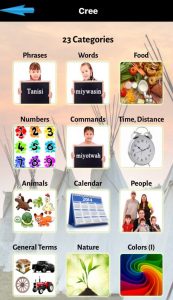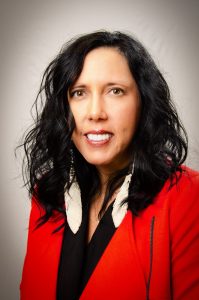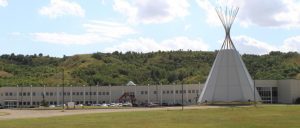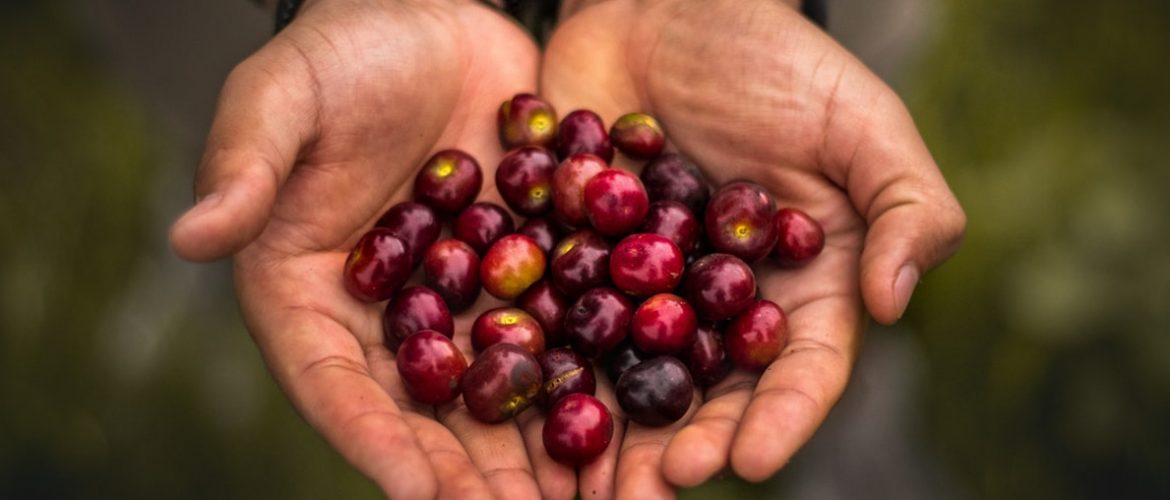In honour of Alzheimer’s Awareness Month, CABHI is releasing two new blogs a week about the innovative solutions changing the dementia narrative in Ontario, Canada, and around the world.
Dementia-related illnesses such as Alzheimer’s disease are a growing health concern here in Canada, especially for people living in Indigenous communities[i].
Studies conducted in Alberta, for example, reveal that the prevalence of dementia in First Nations communities is 34% higher than in non-Indigenous populations[ii].
Barriers such as linguistic differences and geography can make accessing quality care difficult for Indigenous seniors living with Alzheimer’s. These barriers can also make it challenging for caregivers to access the resources and support systems they need to care for their family members or clients.
The Centre for Aging + Brain Health Innovation (CABHI), powered by Baycrest, is partnering with innovators across Canada to support healthy aging and longevity in Indigenous communities. These innovations are helping Indigenous seniors age well in their setting of choice.
Many of these projects – which range from apps to art programs – are anchored in the traditions, cultures, and languages of the communities they are designed to serve and are helping to inform best practices in Indigenous seniors’ care.
Here are some of the ways CABHI-supported projects are making an impact in Indigenous communities across Canada:
Supporting Senior Care with Technology

An Indigenous language app.
One CABHI-supported study is exploring the effects of language development technology on the quality of life for Indigenous seniors and is helping caregivers adopt technology into their care routines. The study introduced a group of First Nations older adults to apps that use learning games and quizzes to engage users in five Indigenous languages (Cree, Saulteaux, Dakota, Lakota, and Nakota). The project is assessing both how engagement with language stimulates brain activity, as well as user needs in adopting the technology.
Participating older adults and caregivers are from 11 First Nations in southern Saskatchewan, represented by the File Hills Qu’Appelle Tribal Council. The 15-month study predicts app use will benefit older adults by making it easier to age at home for longer—reducing costs to the healthcare system and impacting the quality of life for caregivers. The study is supported by CABHI’s Strategic Opportunity Fund.
Growing Roots and Aging in Place
Indigenous seniors living in western Manitoba and southern Saskatchewan are growing their own produce as part of a CABHI-supported community greenhouse and garden project.
The project is designed to increase social inclusion, independence, and food security. The project will also address the underlying causes of chronic ailments in older adults, such as strokes and heart disease, by providing access to healthy traditional food options. The end goal is to help older adults in Indigenous communities feel confident about living independent, healthy lives at home for as long as possible.
As the rate of Alzheimer’s continues to rise among Indigenous seniors, projects like the community garden offer culturally relevant ways to improve quality of life and cognitive health.
The community greenhouse and garden project is funded through CABHI’s Spark program, which aims to foster innovations from point-of-care health workers in the aging and brain health sector, and is being led by a team at the University of Saskatchewan.
Building a Healthy Care Community

Dr. Carrie Bourassa.
Family caregivers play an integral role in improving the quality of life for people living with Alzheimer’s. Their well-being is directly linked to their ability to provide the best quality care for their loved ones. Unfortunately, caring for someone living with Alzheimer’s and other dementia-related illnesses can take an incredible toll on caregivers. The day-to-day demands of the role can lead to stress and depression[iii]. This is particularly true in rural communities where caregiver resources are spread out and hard to access.
One CABHI-supported project aims to relieve caregiver burden and stress by promoting community-centered systems of support and developing a training toolkit for family caregivers.
The toolkit consists of training modules that guide users through the stages of dementia. Users will gain a better understanding of how to care for their loved ones during each stage of the illness. They will also learn about nearby community resources and gain access to caregiver training videos.
The project is being led by University of Saskatchewan researcher, Dr. Carrie Bourassa, in partnership with the File Hills Qu’Appelle Tribal Council and is being supported through CABHI’s Spark program.
Elder-led Care for Seniors
Having access to community resources can promote independence in older adults and increase their ability to stay at home for longer[iv].
That’s why Dr. Sangita Sharma, a professor at the University of Alberta, is building an Elder-led training program that promotes social engagement, healthy living and education among seniors.
The project, which is being supported through CABHI’s Spark program, will connect Indigenous seniors and caregivers living in the Northwest Territories to information on nutrition, physical activity, and healthcare services through community-based events. The project’s roster of activities will include peer-led exercise classes, recipe sharing, and berry or medicine picking.
With an approach that merges expertise from community Elders, knowledge holders, policy makers, caregivers and healthcare professionals, the program will be enriched with culturally relevant knowledge that can help seniors age well at home. The final list of activities will be determined by community members who will benefit directly from the project.
Promoting Brain Health Through Culture
It is common for people living with dementia to return to their mother tongue and cultural traditions as a means of communication[v]. Indigenous seniors living with a dementia-related illness may be at risk of increased social isolation if they are not connected to a healthcare system that can address their unique cultural needs.
A CABHI-supported project is seeking to address this issue by engaging people living with dementia and their caregivers through traditional art and teaching workshops.
The project aims to improve and maintain cognitive health and social engagement by connecting Indigenous seniors to their traditional cultural experiences. Seniors who participate will have the opportunity to engage in activities such as games, arts and crafts, prayer with smudging, dance, and songs.
Participants can also access activities remotely. This feature of the project will support participation from those who are often left out of traditional ceremonies due to immobility or a lack of transportation.
The project, which began in November 2019, will include three rounds of traditional workshops developed by Morning Star Lodge, an Indigenous community-based health research lab in Regina, Saskatchewan. CABHI is providing support for this project through our Spark program.

File Hills Qu’appelle Tribal Council
[i] https://www.ccnsa-nccah.ca/docs/emerging/RPT-Alzheimer-Dementia-MacDonald-Ward-Halseth-EN.pdf
[ii] https://alzheimer.mb.ca/wp-content/uploads/2019/03/Mar4Plenary-Understanding-Dementia-in-Indigenous-Populations-Kristen-Jacklin.pdf
[iii] https://alzheimer.ca/en/Home/Living-with-dementia/Caring-for-someone/Self-care-for-the-caregiver
[iv] https://www.ncbi.nlm.nih.gov/pmc/articles/PMC5342846/
[v] https://alzheimer.ca/en/bc/Living-with-dementia/Ways-to-communicate


